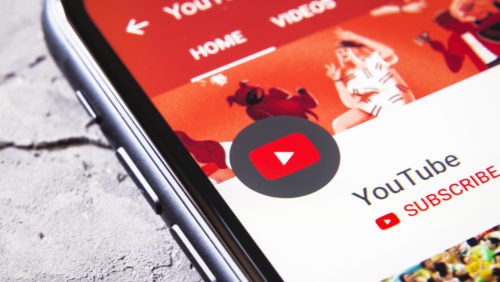Institute for Public Representation’s 2018 Complaint Against YouTube and Google Regarding Protection of Children Results in Settlement, Fine
September 5, 2019

An April 2018 complaint filed by Georgetown Law’s Institute for Public Representation Communications & Technology clinic on behalf of clients Campaign for a Commercial-Free Childhood (CCFC) and the Center for Digital Democracy (CDD) has resulted in a $170 million fine against Google by the Federal Trade Commission and the New York Attorney General.
The settlement also “requires Google and YouTube to develop, implement, and maintain a system that permits channel owners to identify their child-directed content on the YouTube platform so that YouTube can ensure it is complying with” the Children’s Online Privacy Protection Act (COPPA). Content creators will be asked to disclose if they consider their videos to be child-directed; if they do, no behavioral advertising will be served to viewers of those videos.
Nearly two dozen privacy and consumer groups signed on to the complaint, which detailed how Google profits by collecting personal information from kids on YouTube without first providing direct notice to parents and obtaining their consent as required by law. Google uses this information to target advertisements to children across the internet and across devices, in clear violation of COPPA.
“I am pleased that the FTC has made clear that companies may no longer avoid complying with COPPA by claiming their online services are not intended for use by children, when they know that many children in fact use their services,” said Professor Angela Campbell, director emerita of IPR’s Communications & Technology Clinic, which researched and drafted the complaint.
But the proposed settlement, Campbell said, is not enough to protect children in the future or to hold wrongdoers accountable.
“It’s disappointing that the FTC has not fully used its existing authority to hold Google and YouTube executives personally liable for adopting and continuing to utilize a business model premised on ignoring children’s privacy protection, to adopt a civil penalty substantial enough to deter future wrongdoing, or to require Google to take responsibility for ensuring that children’s content on YouTube platforms complies with COPPA,” she said.
Hard Work Pays Off
“The FTC clearly took our complaint very seriously and cited much of the evidence we presented,” Campbell said. Three students, now alumni — Victor Wang (L’19), Ethan Plail (L’18) and Adam Kornetsky (L’18) — worked on the complaint in Fall 2017, and one, Spencer Beall (L’18), in Spring 2018.
“It is gratifying to see their hard work, as well that of the fellows, pay off,” Campbell said, adding that she has already received congratulations from former students, Hill staff and other advocates. “All of the publicity about the matter is good in that it helps parents to better understand how personal data is collected and used and the risks that it presents to them and their children.”
Assuming that the FTC makes sure the agreement is properly implemented, monitored and enforced, children will be subject to less tracking and less targeted advertising, all of which is good, she noted.
Still, she would have liked to see stronger injunctive relief and a higher penalty. “I generally agree with the concerns raised by the two dissenting Commissioners. And the fact that Google’s stock closed higher today suggests that even a fine of this magnitude is merely a cost of doing business for Google.”
The case also raises important questions about the responsibilities of platforms to police content, she said.
“On the one hand, it does hold YouTube responsible for knowingly allowing (and even encouraging) content providers to program for children without complying with the COPPA safeguards. On the other hand, merely requiring Google to implement a system that permits channel owners to identify their child-directed content on the YouTube platform, may not be effective.”
The agreement does not require YouTube to verify the accuracy of the channel operators’ representations as to whether the content is child-targeted, Campbell said. Additionally, the agreement could be interpreted to limit Google’s responsibility to cases where it knew a channel was child-directed because it was identified as such by the channel.
“In fact, Google may have actual knowledge of other child-directed content obtained by other means, such as through the data it actually collects for its advertising businesses,” she said. “While Google would remain liable in theory, it is difficult to show actual knowledge in practice. For this reason, there is pending legislation that if adopted, would change the standard to constructive knowledge.”
Campbell, currently chair of CCFC’s Board, served as lead counsel to CCFC and CDD on the YouTube and other complaints alleging COPPA violations. Along with CDD’s executive director Jeff Chester, Campbell was responsible for filing an FTC complaint in 1996 against a child-directed website that led to the passage of COPPA in 1998. COPPA gave the FTC expanded authority to implement and enforce the law by including civil penalties.